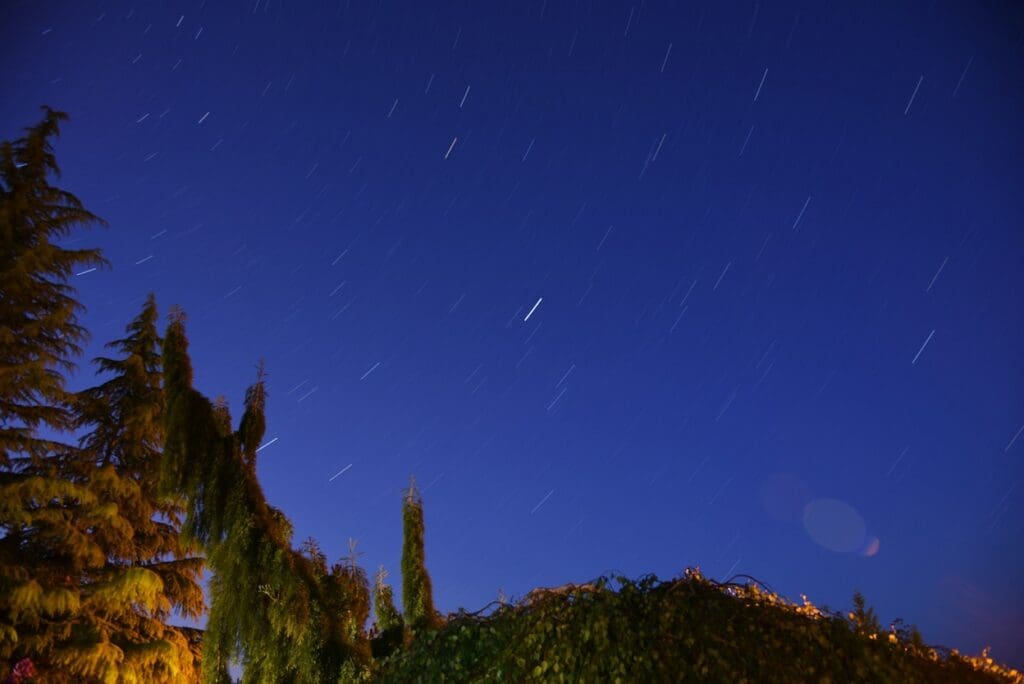If you’ve been craving a reason to step outside late at night, this week’s Orionid meteor shower might be it. The annual light show tied to Halley’s Comet is expected to streak across New Jersey skies, with the best views coming in the early hours of Tuesday morning.
Locals can expect fast, bright meteors darting overhead—the kind that leave long, glowing tails before fading. With a new moon falling right around the same time, skies should be darker than usual, which means better visibility for stargazers.
When and Where to Look
The Orionids show up every fall, usually between October 2 and November 7, but the real action happens this week. The peak is expected overnight from October 21 into October 22, when the Earth passes through the densest part of Halley’s Comet’s debris trail.
The American Meteor Society says the best time to watch is after midnight and before dawn. The fewer lights around you, the better your odds. On a clear night, you could see anywhere from 15 to 25 meteors an hour.
A Bit of Cosmic History
These shooting stars are tiny fragments of Halley’s Comet, which swings by Earth about once every 76 years. The comet hasn’t been visible since 1986, but its trail still crosses our orbit each October, giving us the Orionids.
When those pieces hit Earth’s atmosphere, they burn up at speeds topping 140,000 miles an hour—fast enough to light up the sky for a brief, brilliant moment, according to NASA.
A Few Tips Before You Watch
- Dress in layers, fall nights get cold fast.
- Leave your phone in your pocket to protect your night vision.
- Bring a chair or blanket so you can look straight up comfortably.
- Stay patient. Meteor showers ebb and flow, so hang around for a bit.
Why It’s Worth Staying Up
For a few nights each October, New Jersey becomes one of the best places on the East Coast to catch the Orionids. There’s no fancy equipment required—just a clear night, some patience, and maybe a cup of coffee.
Halley’s Comet won’t pass Earth again until 2061, but its legacy lights up the sky every year. For now, all you have to do is look up and enjoy one of the oldest light shows in the solar system. Remember to give yourself at least 20 minutes to adjust to the dark if you’re watching in an area with some light pollution.
The New Jersey Digest is a new jersey magazine that has chronicled daily life in the Garden State for over 10 years.
- Staffhttps://thedigestonline.com/author/thedigeststaff/
- Staffhttps://thedigestonline.com/author/thedigeststaff/
- Staffhttps://thedigestonline.com/author/thedigeststaff/
- Staffhttps://thedigestonline.com/author/thedigeststaff/


